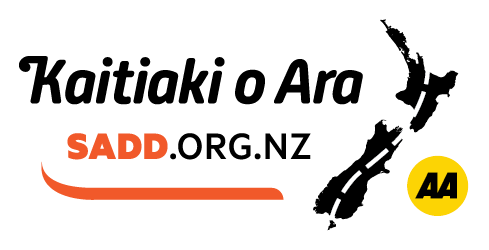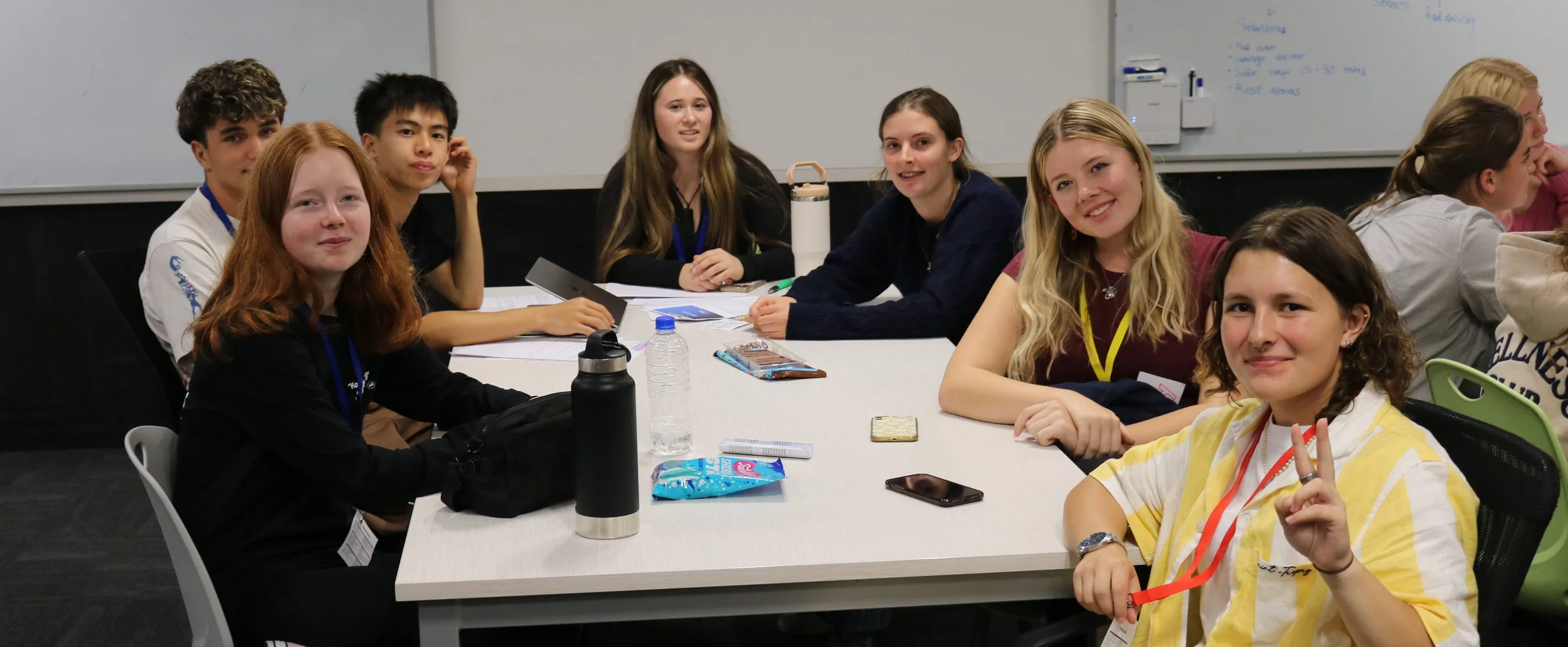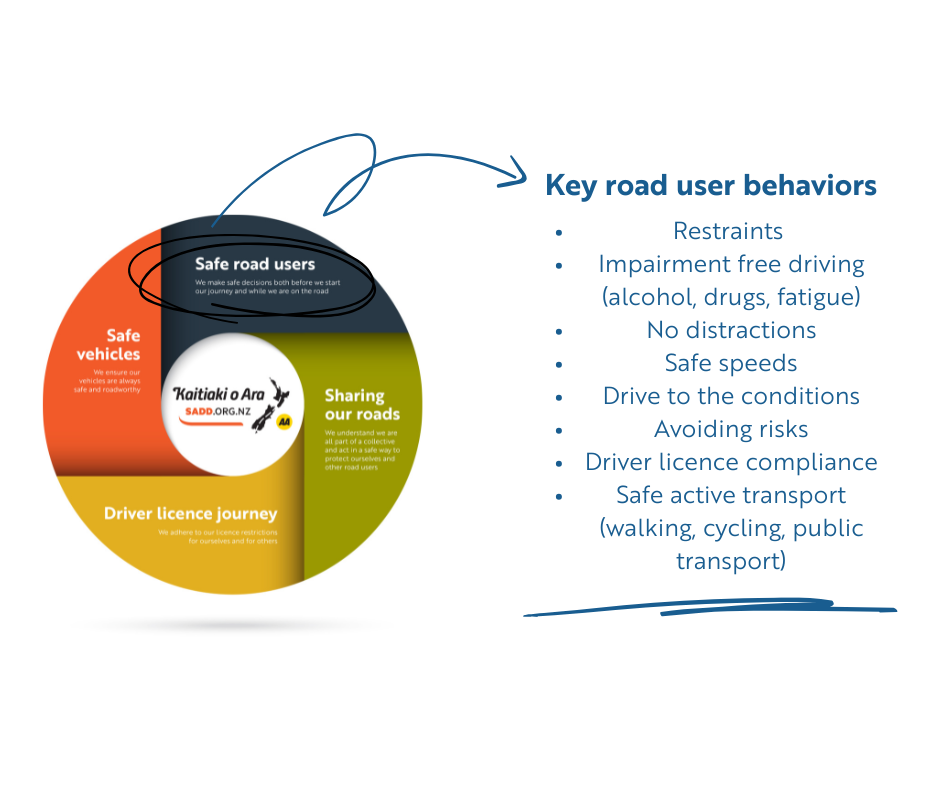Empowering Young Drivers: SADD Programme Merges Road Safety with NCEA Achievement
Across Aotearoa, young people are stepping up to lead conversations about safer driving and making powerful contributions to community wellbeing—while earning credits towards their NCEA. The Students Against Dangerous Driving (SADD) Unite programme is one such initiative that blends personal development, civic engagement, and formal assessment.
What is SADD?
SADD is a national student-led movement promoting safer driving behaviours among youth. Focused on four aspirations of road safety—safe road users, sharing our roads, safe vehicles and driver licence journey—SADD empowers secondary school students to be advocates and leaders for change. The programme is student-led, promoting student centric learning and youth agency.
Students participate in a range of campaigns, events, and research activities that raise awareness about risky behaviours and promote peer-to-peer education. These may include road safety expos, digital campaigns, running activities and surveys within their school or local community.
Linking to NCEA: A Real-World Learning Opportunity
The unique strength of the SADD programme lies in its seamless connection to NCEA achievement.
For example:
Health Achievement Standards can be met by investigating the impacts of unsafe driving and developing community-based action plans.
Social Studies Standards may be used when students explore the societal impacts of road safety and advocate for change through civic participation.
English Standards come into play through speeches, report writing, and media analysis involved in campaign creation.
A key outcome is that students not only gain credits but also build transferable skills in leadership, project management, research, and communication—qualities that prepare them for life beyond school.
See website for example of our SADD students curriculum focused projects.
Career and Transition Benefits
For careers and transition educators, programmes like SADD offer more than just subject-specific outcomes. They provide a rich platform for career exploration in areas such as:
Public health and safety
Community development
Media and communications
Government and policy
Emergency services
Through structured engagement, students are able to complete Achievement Standards in Business studies, Health, Social Studies, English, Geography and Maths, depending on how their projects are framed and assessed. Students across Aotearoa have found meaningful ways to tie SADD and road safety education into their classroom learning.
In Masterton, James focused his NCEA Geography research on road safety along a stretch of road meaningful to his whānau, using mapping and data to explore local risks and solutions. And Hayley, a SADD leader from Gisborne, integrated SADD into her Business Studies project by developing a student-led social enterprise campaign promoting safe driving.
Through these curriculum links, students not only deepen their understanding of important social issues but also gain credits, real-world experience, and transferable skills in communication, leadership, critical thinking, and community engagement.
Beyond its core focus on road safety, SADD plays a powerful role in shaping the future of young people by fostering a wide range of life skills and career-ready capabilities. Through their involvement, students build confidence in safe decision-making, strengthen their problem-solving abilities, and gain experience in areas such as event planning, campaign design, evaluation, and teamwork.
Students often find new pathways through their involvement in road safety initiatives, discovering passions they hadn’t previously considered. Many also explore career interests through exposure to emergency services, public health, education, engineering and community development sectors.
SADD supports students in understanding the real-world importance of driver licensing and compliance, helping them take steps toward independence and employability. With dedicated Careers and Pathways tools, SADD makes it easy for students to connect their experiences to future study or work, highlighting transferable skills and personal growth. By engaging with SADD, young people are not only helping to keep their peers safe — they’re growing into socially conscious leaders with the knowledge and insight to thrive in whatever path they choose.
Former SADD National Leader and Youth Representative to the Board of Trustees, Tayla Hill, is now studying Environmental Engineering at the University of Waikato. “When applying for internships and jobs, I often draw on my SADD experience” says Tayla. “From being on the board to speaking at conferences, I’ve gained transferable skills that help me stand out. My involvement shows I’m not just technically capable – I also bring leadership, initiative, and an understanding of community needs, especially from a youth perspective. Even while I was still at school, SADD gave me opportunities to work alongside police, local councils, and road safety partners. Those experiences taught me how to communicate professionally and build relationships – skills that I’ve carried into my studies and career planning”
Supporting Educators and Schools
The SADD organisation provides resources, facilitator training, and assessment guides to help schools integrate their programme with curriculum outcomes. Career and transition educators play a key role in supporting students to align their SADD activities with personal learning goals and vocational pathways.
SADD has recently developed a course - Unite for road safety, that can be facilitated by teachers to enable their students to learn about road safety while earning NCEA credits. The course has been run at many schools through the Police Pathways Programme. The course has now been adapted to allow for more schools to take up this opportunity to help empower young people to spread awareness about safer driving behaviours. The course is designed to fit the assessment requirements of US9681 but can be adapted to accommodate other similar unit standards, especially interpersonal communications, problem solving, and team work.
Sara Hampton - Gateway Coordinator and Kaiako at Orewa College has been facilitating this course with her students. “The presentation is a great resource for teachers to use who are interested in promoting safe driving practices on our roads” She says. “It fits well into the US9681 assessment.”
“My group has learnt so much from this collaborative task especially; problem solving by planning an outcome, communication skills with peers they do not normally work with, learning how to appoint a leader and allocating tasks based on personal strengths.”
To learn more about integrating SADD into your school or to access assessment-aligned resources, visit https://www.sadd.org.nz/activities-resource-hub/road-safety-in-the-curriculum
Final Thoughts
SADD is more than just a road safety programme—it's a springboard for lifelong learning and community contribution. For educators passionate about creating meaningful, contextualised learning experiences, it's a valuable resource that supports Road Safety, NCEA success and future-ready skills.
Contact Donna@sadd.org.nz to learn more about the Unite course.





